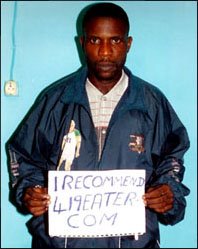The Register reports that the incidence of email "get rich quick" scams more than doubled (albeit from a low base) last month, according to email security firm Clearswift. It warns surfers to disregard spurious "work from home opportunities" received via junk mail which are normally designed to lure naive users into criminal enterprises. After accounting for 0.5 per cent of spam emails in September these work at home scams made up 1.2 per cent of junk emails caught in a Clearswift's sieve last month.
These so-called opportunities typically come in two flavours. The first involves accepting delivery of goods paid for with a stolen credit card, then forwarding them further along the chain, and the second is a simple money-laundering role where the "worker" acts as a laundering mule.
As "get rich quick" scams have increased in prevalence other categories, including phishing fraud and pornographic junk mail, have taken a nose-dive, according to Clearswift's latest monthly spam index. Phishing - where crooks set up a fake banking websites in order to gather credit card details of gullible users - has suffered a decline, now accounting for only 0.4 per cent of all unsolicited mail. Clearswift reckons greater awareness of the existence of phishing scams has contributed to their decline.




